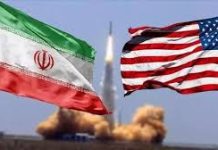The Organization for Petroleum Exporting Countries, OPEC, plans to resume oil output-freeze talk after the meeting with its members and non-OPEC countries which was supposed to birth a deal fell through last Sunday in Doha, Qatar.
Iraq’s governor to OPEC, Falah Al-Amri said on his Facebook page, that discussions would resume in June at OPEC’s general meeting, to reach an agreement on freezing oil output.
His statement came just days after politics thwarted a deal to cap production and curb the global glut. No deal will be possible without a change in “political positions,” he said.
Negotiations among 16 oil producers on Sunday, ended without any accord after Saudi Arabia demanded all producers take part in a freeze.
Saudi Arabia’s regional rival, Iran decided not to take part in the talks because it wants to restore exports which had been curbed by international sanctions.
“If there is no change in the political positions, an agreement cannot be reached.
“Prices will continue on a downward trend, especially if some producing countries continue to increase their output to cause an imbalance in crude supply and demand,” Al-Amri said.
Crude prices dropped on Monday after the failed talks and have since rebounded as oil workers in Kuwait continued a strike for a third day, cutting production. Iraq, OPEC’s largest producer after Saudi Arabia, supported an agreement reached in February between Saudi Arabia, Russia, Venezuela and Qatar to cap output at January levels.
It pumped a record 4.55 million barrels a day in March. After the talks in Doha, Iran’s oil minister, Bijan Namdar Zanganeh, said some producers were under the “illusion” that they could get the nation to limit its oil production and effectively re-impose sanctions on itself.
Iran pumped 3.2 million barrels of crude a day in March, according to data compiled by Bloomberg, and plans to reach four million barrels a day by the end of the Iranian year in March.













